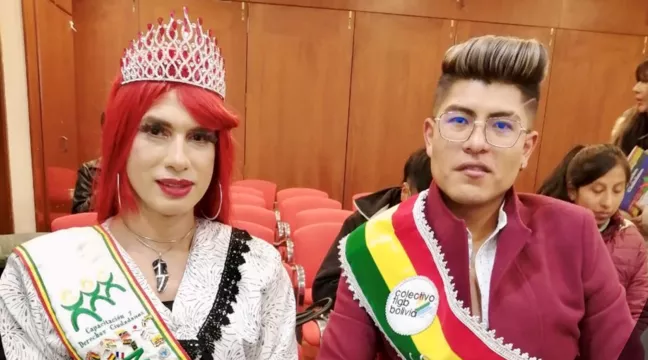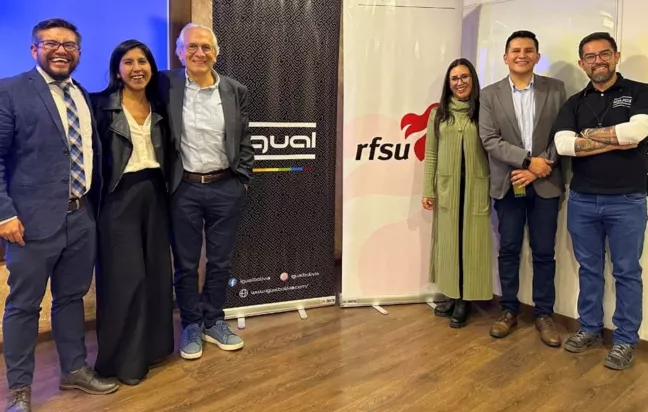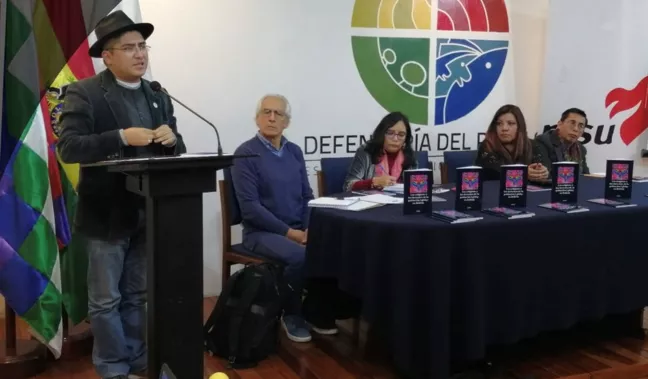
Unique report on pregnant trans people in Bolivia
RFSU's partner organisations in Bolivia have recently published two important reports on LGBTIQ+ rights. Programme manager Iván Prudencio, who works with RFSU’s partners in Bolivia, attended the report launch.
The first report, conducted by the organisation IGUAL, focuses on the healthcare rights of pregnant trans people. It builds on IGUAL's eight case studies of pregnant trans men in Bolivia and highlights violations of their sexual and reproductive rights.
Challenges for pregnant trans men
In addition to the lack of access to healthcare, the report identifies legal barriers for trans people to parent without compromising their gender identity.
“The obstacles faced by pregnant trans men start with the difficulty of finding healthcare professionals and facilities willing to provide prenatal care. This is followed by the challenge of finding a healthcare centre that allows them to give birth there and the uncertainty of how the newborn's registration will be handled. Birth registration forms are based on binary logic, only accommodating information about ‘the mother‘ who gives birth”, Iván Prudencio explains.

IGUAL supports trans men who have given birth
IGUAL has been assisting trans men who have given birth since 2020. Due to the absence of a legal procedure at the civil registry office, these persons have faced challenges in correctly registering their parentage. As a result, they have been compelled to register as mothers using their previous female-coded names.
“This situation has caused significant difficulties for both the birth-giving parent and their babies. However, with legal assistance, IGUAL has been able to rectify the registration process, ensuring that the trans parent's current name is listed”, tells Iván.
The organisation continues to advocate for trans people to be able to register their children and parenthood without encountering obstacles. IGUAL argues that there are now sufficient grounds, particularly in the best interest of the children, for the civil registry to establish a special procedure for this purpose.
“No person, child, or young person should have their rights violated due to their own or their parents' gender identity”, Ivan Prudencio emphasises.
Social stigma in Bolivia
Additionally, a study conducted by the organisation CDC sheds light on the social stigma faced by many LGBTIQ+ persons in Bolivia. The study, which involved interviews, focus groups, and a survey of 511 LGBTIQ+ persons, reveals the challenges and discrimination experienced by this community.
- Social stigma is present in various aspects of LGBTIQ+ people’s lives, with the church, educational institutions, healthcare, and the workplace being the most stigmatising areas.
- The silence surrounding stigmatisation makes victims hesitant to speak out, with only a small number reporting incidents to authorities.
- The majority of respondents attribute stigmatisation to a lack of awareness. They advocate for information campaigns, training for authorities, and changes in legislation to address and diminish it.

Attitudes and beliefs need to change
The respondents recognise the legal progress made in Bolivia, but feel that there is a lack of action to change people's opinions and attitudes.
“The report is unique and can now be used to monitor the issue for any changes and as a tool for advocating against discrimination towards LGBTIQ+ individuals in Bolivia. It will be valuable for outlining and implementing preventative measures, devising mobilisation strategies, and recommending policies that support the rights of the specific group," Iván Prudencio states.